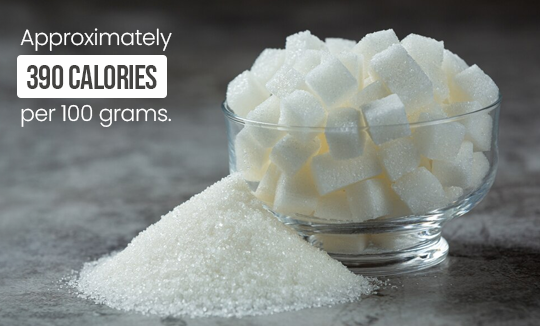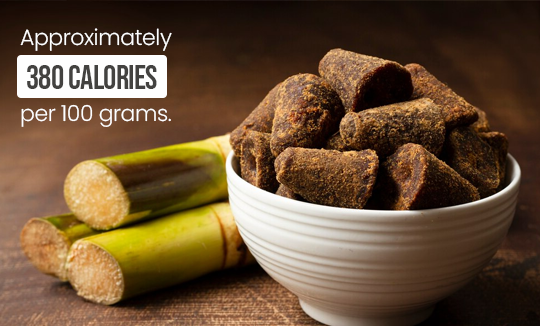
About Vitazia Wellness
- Biological Clock - Align your daily routine with your body’s natural rhythms.
- Balanced Diet - Enjoy a well-rounded diet without fads.
- Exercise - Engage in moderate, goal-specific exercises.
- Cognitive Behavioral Therapy (CBT) - Foster positive thinking and behavioral changes for lasting health benefits.
Blog Detail
- Home
- Blog Detail
Sugar vs. Jaggery: The Sweet Truth About Your Health
Navigating the world of sweeteners can be confusing, especially with the variety of options available today. Among the most common debates is the one between sugar and jaggery. Many people wonder if making the switch from sugar to jaggery is a healthier choice. Let’s delve into this sweet dilemma and uncover the truth about these two popular sweeteners.
Sugar and Jaggery: The Basics
Sugar is a refined sweetener primarily composed of sucrose, derived from sugarcane or sugar beets. It is highly processed, stripping away most of its natural nutrients.
Jaggery, on the other hand, is an unrefined sweetener made by boiling raw, concentrated sugarcane juice or palm sap until it solidifies. This process retains more of its natural minerals, giving jaggery a nutritional edge over regular sugar.
Calorie Comparison
One of the key considerations for those looking to switch sweeteners is calorie content. Surprisingly, the caloric difference between sugar and jaggery is minimal:
- Sugar: Approximately 390 calories per 100 grams.
- Jaggery: Approximately 380 calories per 100 grams.
From a caloric standpoint, switching from sugar to jaggery won't significantly reduce your calorie intake.


Nutritional Content
While sugar offers virtually no nutritional value, jaggery contains small amounts of vitamins and minerals, including:
- Iron
- Magnesium
- Potassium
- Calcium
However, to gain substantial benefits from these nutrients, you would need to consume jaggery in large quantities, which is not advisable due to its high sugar content.
Health Impacts
Sugar: Consuming too much sugar can lead to various health issues, including weight gain, increased risk of type 2 diabetes, heart disease, and tooth decay. It provides empty calories without any beneficial nutrients.
Jaggery: While jaggery does contain some nutrients, consuming it in large amounts can also lead to similar health problems as sugar due to its high sugar content. Excessive consumption can result in weight gain, blood sugar spikes, and potential dental issues.
The Verdict: Moderation is Key
Given the minimal caloric difference and the impracticality of consuming enough jaggery for its minerals, neither sugar nor jaggery should be relied upon as a primary source of nutrients. Instead, focus on obtaining essential vitamins and minerals from more nutrient-dense foods such as vegetables, fruits, whole grains, and lean proteins.
Healthier Alternatives
To support your health and reduce the intake of added sugars, consider these tips:
- 01: Natural Sweeteners: Use natural sweeteners like honey or maple syrup in moderation. These provide some nutrients but should still be used sparingly.
- 02: Fruits: Incorporate fruits like bananas, berries, and dates to add natural sweetness to your meals. They offer fiber, vitamins, and antioxidants.
- 03: Spices: Enhance the flavor of your food with spices such as cinnamon, nutmeg, and vanilla, which can add a sense of sweetness without the added sugar.
- 04: Read Labels: Be mindful of hidden sugars in packaged foods. Opt for products with minimal or no added sugars.
Conclusion
In the sugar vs. jaggery debate, it’s clear that both sweeteners have their pros and cons. While jaggery offers a slight nutritional advantage, the benefits are not significant enough to warrant consuming large amounts. Both sugar and jaggery should be enjoyed in moderation to maintain a healthy diet. Focus on a balanced diet rich in whole foods, and minimize the intake of added sugars to support overall health and well-being.
Remember, your health and well-being are interconnected. By paying attention to the signals your body sends and making mindful adjustments, you can achieve a better balance and a more fulfilling life.

